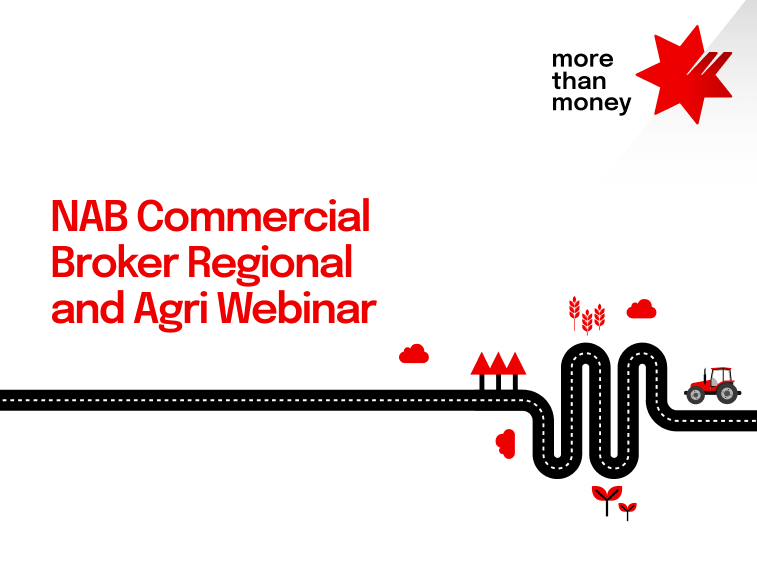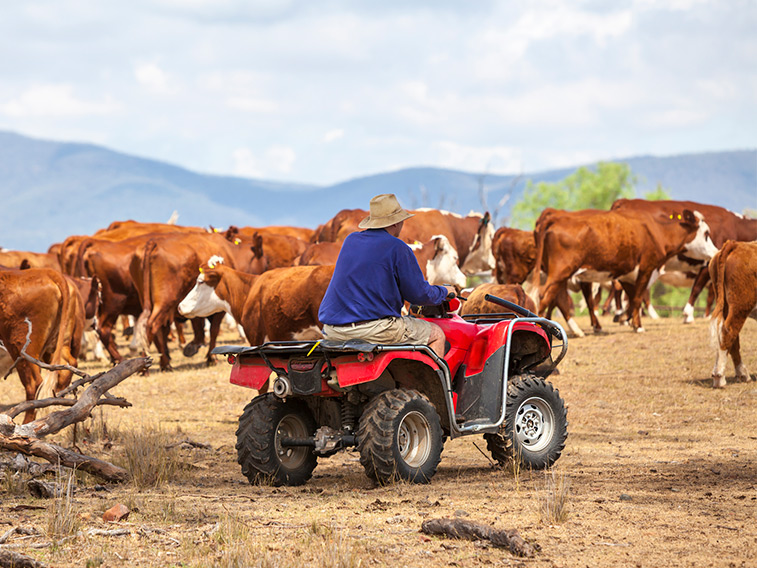An exclusive webinar to help you deliver the best outcomes for your R&A business. Watch now.


Webinar
Benchmarking can help farmers identify opportunities for growth. Holmes Sackett’s John Francis and NAB’s Matt O’Dea discuss the benefits and considerations.

Benchmarking is helping a growing number of farmers boost their productivity and return on investment. John Francis, a consultant at Holmes Sackett, and Matt O’Dea, NAB’s Head of Agribusiness SA/WA, discuss the potential benefits, what to expect and the opportunities.
Astute farmers are constantly searching for ways to improve their efficiency and productivity. A growing number are using benchmarking to help them identify opportunities for growth.
“Benchmarking allows you to compare your own key performance indicators (KPIs) with those of highly profitable producers,” says John Francis, a director and consultant at agricultural consulting firm Holmes Sackett.
“This will help you to identify areas that would benefit from some development and also to pinpoint those that will generate the greatest return on investment. Farm businesses often have limited capital so it’s important to know where you can invest that most effectively,” he says.
Done well, benchmarking can provide an overview of the business as a whole.
“Many farmers already use a SWOT analysis to identify strengths, weaknesses, opportunities and threats,” says Matt O’Dea, NAB’s Head of Agribusiness SA/WA.
“Benchmarking can help with the S (strengths), W (weakness) and O (opportunities). It can also help by ensuring that business professionals such as your bank manager, accountant and agronomist are all on the same page so all of their business thinking and advice is aligned with your strategy.”
O’Dea also believes benchmarking can play an important role in the overall governance process.
“There’s room for improvement in the governance of many family farms throughout Australia,” he says. “Benchmarking can support that by raising some thought-provoking questions about the way your farm is running.”
O’Dea says some farmers are choosing to talk to other farmers to gain insights and ideas for improvements.
“I believe that, in rural and regional Australia, the more you engage with other people the better off you are. It’s easy to feel as though you’re on your own but, once you start talking to other farmers, you’ll often find that they’ve faced similar challenges and that they’re very willing to help.”
However, it’s important to compare apples with apples.
“If you’re in a drought area, for instance, there’s little point in benchmarking yourself against someone who isn’t,” O’Dea says. “In my opinion, benchmarking groups can be very valuable even when you are in hardship. Again, it gets people talking and you might find that someone is doing something to save costs that others haven’t picked up on. It’s this collaborative approach that I find really exciting.”
Data collected by Holmes Sackett suggests farmers who participate in a group tend to perform better than those who don’t.
“We surmise that farmers benefit from sharing ideas and that they are motivated by their peers’ successes” says Francis.
However, a group environment doesn’t suit everyone.
“It can be challenging because you’re opening up your business for other people to appraise,” Francis continues. “In order to benefit you must be open to change and willing to accept evaluation without taking it personally.”
Farmers can benchmark their business against a comparable cohort.
“We have been benchmarking commercially for over 15 years so we have a huge amount of data to draw on,” says Francis.
However, Francis cautions that, while benchmarking can add a great deal of value to a farm business, it requires an investment of both time and money.
“We need to collect information about the whole of your business in enough detail to be able to report a full set of management accounts,” he says. “When you’re providing that for the first time you’ll probably need to spend a considerable amount of time working with us in the office but, once we’ve created the pathway, collecting the data in subsequent years will be much faster and more straightforward.”

Both Francis and O’Dea also stress that benchmarking is not an end in itself.
“Before you start, you need to be very clear about both your objectives and what you’re prepared to do once you receive the information,” says Francis. “If you’re not willing to take action based on the findings there’s no point in going through the motions.”
“You shouldn’t go into benchmarking expecting it to provide you with solutions,” adds O’Dea. “What it can do is help you to ask the right questions and formulate strategies that will lead to solutions.”
© National Australia Bank Limited. ABN 12 004 044 937 AFSL and Australian Credit Licence 230686.